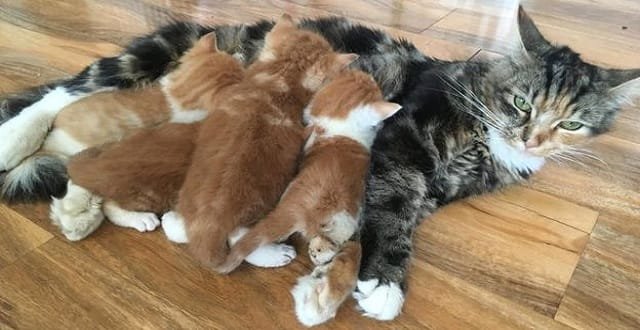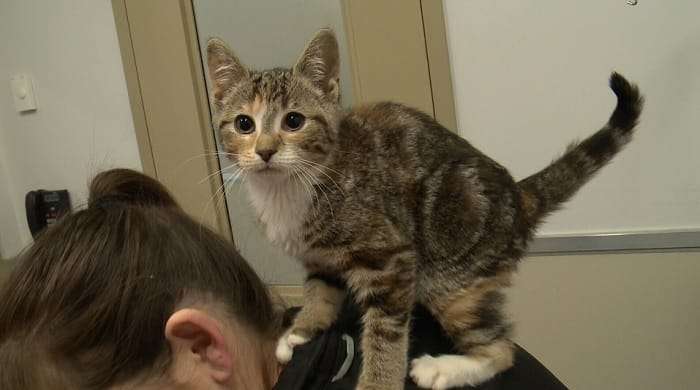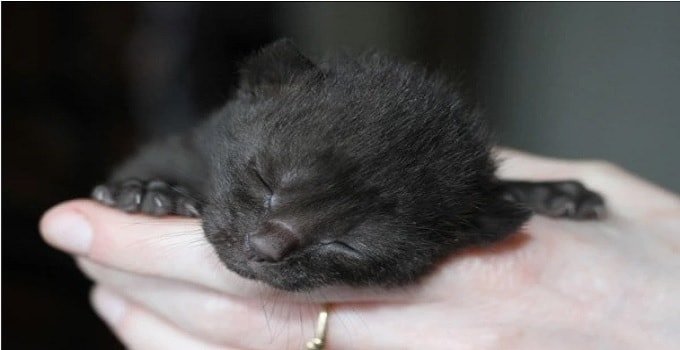Just like most things with cats, there’s no one simply answer, although, we think we can safely rule out vengeance. Not that cats are above being spiteful, it just doesn’t seem likely in this case.
Animal experts actually have a few theories. For one, you should consider where you go when you’re not feeling well. Most likely, it’s to bed where you can peacefully lie down, be comfortable and get some rest. For cats, the carpeting is sort of the same as a sick bed.
Throwing up is not a very pleasant experience for them, so they seek an area where they’ll feel more comfortable doing it. Hacking up a hairball is a physically challenging exercise and so the cat needs something to sink her claws into and provide traction. Alas, the easier to clean bare floor simply does not provide that.
Yet another theory is that your cat is channeling its ancient wild cat instincts. Showing sickness or leaving behind evidence of it is something akin to flashing signal to say “easy prey here.”
When your cat hacks up, her instinct tells her to bury it and while the carpet is not a good place to do that, to the cat is appears better than the hardwood floor. This theory doesn’t ring very true to me because you rarely see your cat tossing a hairball into a potted plant, which would be a good place to bury something.
The other existing theories have more to do with you than your cat. In many homes, the ratio of carpet to bare floor is in favor of the carpet, which means that statistically, you’re just simply going to get more hairballs hitting the carpet than the bare floor.
You might also just remember the carpet incidents more because of the fact that they are more difficult to clean and therefor might stick in your memory more.
We’re not sure this will make you feel any better, but it’s much healthier for your cat to throw up the hairball than not. Hairballs are precisely what the name implies — accumulations of hair that your cat ingests when she grooms herself.
Dead hair indeed catches very nicely on the cat’s rough tongue, but unfortunately, it can also cause the cat to swallow the hair. Most of that hair will pass through the cat’s digestive tract and out the other end but some of it can accumulate in your cat’s stomach.
Too much of the hair can actually cause intestinal blockages, which can make your cat very ill. So periodically, your cat will attempt to throw up these hair masses to keep their system working.
That horrible retching and gagging is actually quite normal in cats, but if your cat is vomiting often, take her to vet for a check up.
There’s not too much you can do to prevent hairballs, but you can help by assisting your cat with her grooming. Brushing or combing off those loose and dead hair before she has a chance to swallow it will help.
Long-haired cats have a greater problem with hairballs, so if your cat falls into that category, you might want to switch her diet to a hairball reduction food. These particular foods are higher in fiber, which can improve the quality of the coat, minimize shedding and keep the system flowing.
An occasional dose of hairball remedy can certainly lubricate the works and allow the hair to move through the intestines easier.
And when you hear the telltale sounds of a new, impending hairball launch, try slipping a newspaper in front of your cat or simply trying to move her.










